|
Genres, Themes, Actors, and Directors:
- Africa
- Deserts
- German Films
- Werner Herzog Films
Review:
Fata Morgana — named after a Sicilian mirage believed to be caused by fairies — is perhaps Werner Herzog’s most representative early work, clearly displaying his fascination with landscapes, diverse humans, and moments of unexpected quirkiness. Unfortunately, while it’s lauded by nearly every critic as an experimental masterpiece (Time Out calls it “brilliantly original, utterly haunting”), I find Fata Morgana to be three parts emperor’s clothing to one part enigmatic vision. Herzog originally set out to create a science fiction story, but abandoned this idea and ended up editing his footage into a three-part “creation story” — Creation, Paradise, and The Golden Age — which doesn’t really reveal much about any of these three topics. Instead, in characteristic Herzog-ian fashion, he seems primarily concerned with aiming his camera at random images, then holding it there for far longer than convention would imply; sometimes this works, but more often it’s simply tedious. Listening to Herzog’s commentary on the DVD illuminates much of what was going on in his mind while shooting and editing the film — but without these insights, it’s difficult to maintain interest even for 79 minutes; the images in Fata Morgana will remain with you, but the “story” — such as it is — won’t.
Redeeming Qualities and Moments:
- Some trippy desert mirages

- Disturbing shots of desiccated cattle strewn across the sand

- The truly odd closing shots of a pimp and a madam performing in a brothel
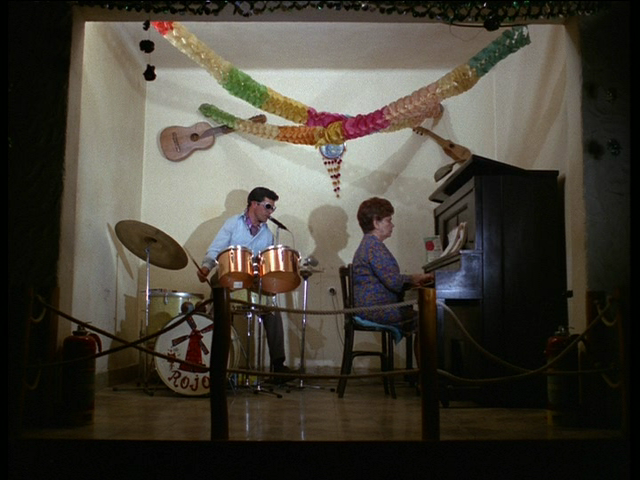
- Many striking images of desert landscapes and peoples
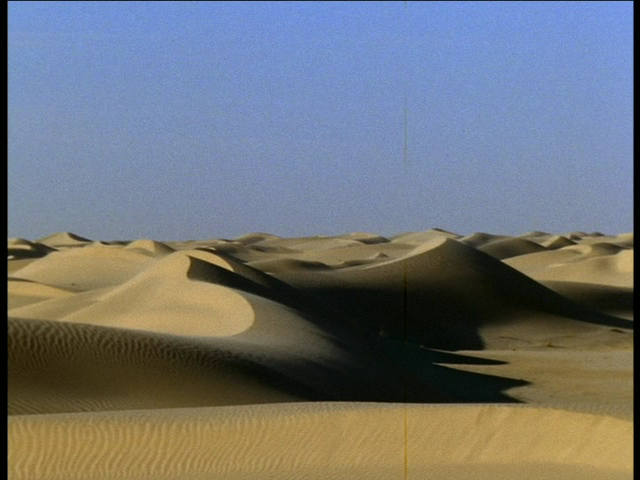

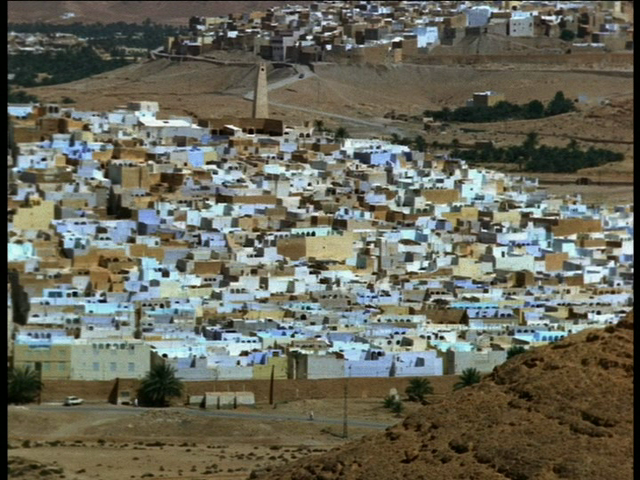
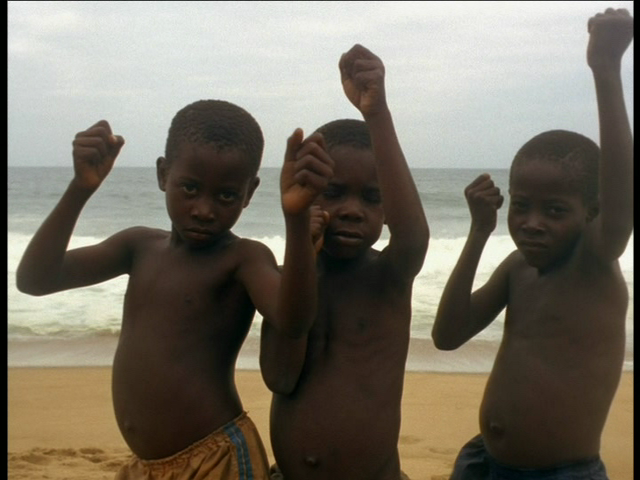

Must See?
No, though it’s worth a look simply for its place in cinematic history. Listed as a Personal Recommendation and a film with historical importance in the back of Peary’s book.
Links:
|
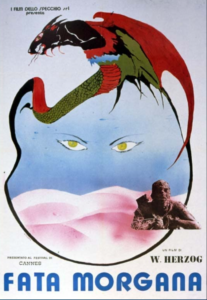








One thought on “Fata Morgana (1971)”
First viewing. Not must-see, but Herzog fans will want to check it out.
Certainly a tone-poem, heavy on spiritual discourse. With its particular combination of text and visuals, it appears to be a sketchbook documenting the wonder of (and the puzzle that is) creation – with hints of joy but a general level of angst (as brought out in statements like “In Paradise, you quarrel with strangers to avoid making friends.”).
Expressive without at all being conclusive, it’s left to the viewer to determine how to feel without necessarily deciding what it “means”. Oddly, the film’s title seems to “say” it all. Though I didn’t find it tedious, I didn’t see it as more than experimental rumination.